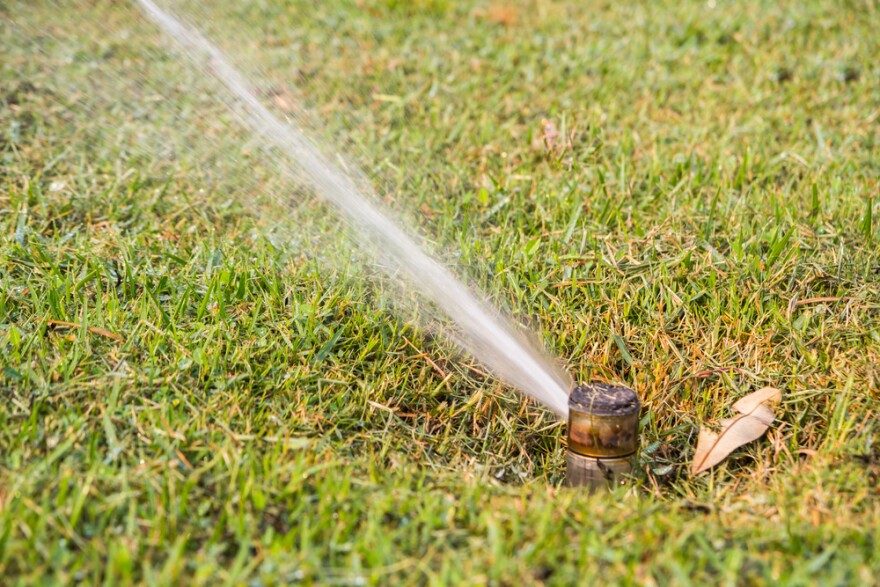Update 10 p.m. Tuesday: The Fort Worth City Council has delayed for one week a vote to permanently restrict outdoor watering to twice a week.
Council member W. B. Zimmerman asked for the additional time to educate the public about proposed conservation plans.
Sal Espino, who represents District 2, was opposed to the delay. He said: "I would be in favor of moving forward with this ordinance, imperfect as it may seem to some, and then later changing it or tweaking, because we've already been doing twice per week watering."
Original story: Since last June, Fort Worth has been restricting outdoor watering to twice a week because of drought conditions. Those measures may become permanent if the City Council adopts a proposed water ordinance Tuesday night.
But as water usage is down, water rates are going up.
Fort Worth has been using less water in the last 14 years, thanks to education and more efficient appliances. In fact, customers bought $11 million less water last year, says Mary Gugliuzza with the city’s water department.
“That $11 million we didn’t sell is 3.7 billion gallons we didn’t use,” she said. “So the restrictions did what they were supposed to do -- they saved water.”
Fort Worth gets water from six lakes. And they are at low levels, or below normal. Because there hasn’t been enough rainfall, and the city is experiencing growth -- 37,000 people moved into Fort Worth last year -- water is limited. Fort Worth is currently enforcing Stage 1 water restrictions.
“I don’t think anybody wants to get down to Stage 2, and only once a week, mandatory watering once a week,” Gugliuzza said. “But if we get to Stage 2, we’re also going to tell you the day to do it. If we get down to 45 percent left in our reservoirs, there is no outdoor watering, at all.”
Inside a water treatment plant
Over at the Eagle Mountain Lake Water treatment plant, north of downtown Fort Worth, Gugliuzza explains that the price of raw water has increased because old pipes need to be replaced, new pipes need to be built, and untreated water has to be cleaned.
“After the waters have gone through the ozone chamber, we add chemicals in a series of basins,” she explained. “[They’re] mixed rather rapidly – [then the] mixing gets slower. But then we need to slow it down, so those particles begin to form.”
Once the mixing is completed, the water flows into what's called sedimentation basins – and, eventually, unwanted particles are filtered out. Hours after disinfection and the addition of fluoride, the water is distributed to more than 30 communities over 2,400 miles of pipeline.
The cost of maintaining and transporting that water is rising -- and that concerns Fort Worth council member Jungus Jordan.
“Water is one of those requirements that government has to provide to our citizens, and in that role, we have a responsibility to make sure we’re doing the right thing with our infrastructure to make that water available, and at the lowest prices possible, with the minimal impact on our citizens’ lives,” Jordan said.
On the fence about permanent restrictions
Jordan says local government shouldn’t be telling residents how or when to water their lawns. Instead, he wants the city to look at 60-year-old water lines that are breaking.
“I am strongly supportive of conservation measures, but I want to see that we the city are following our own rules, repairing infrastructure … investing in that infrastructure.”
That’s why he’s on the fence about supporting the proposed ordinance to make water restrictions permanent in Fort Worth.
“We need a common sense approach to this. We don’t need to spend a lot of money going around to enforce restrictions.”





